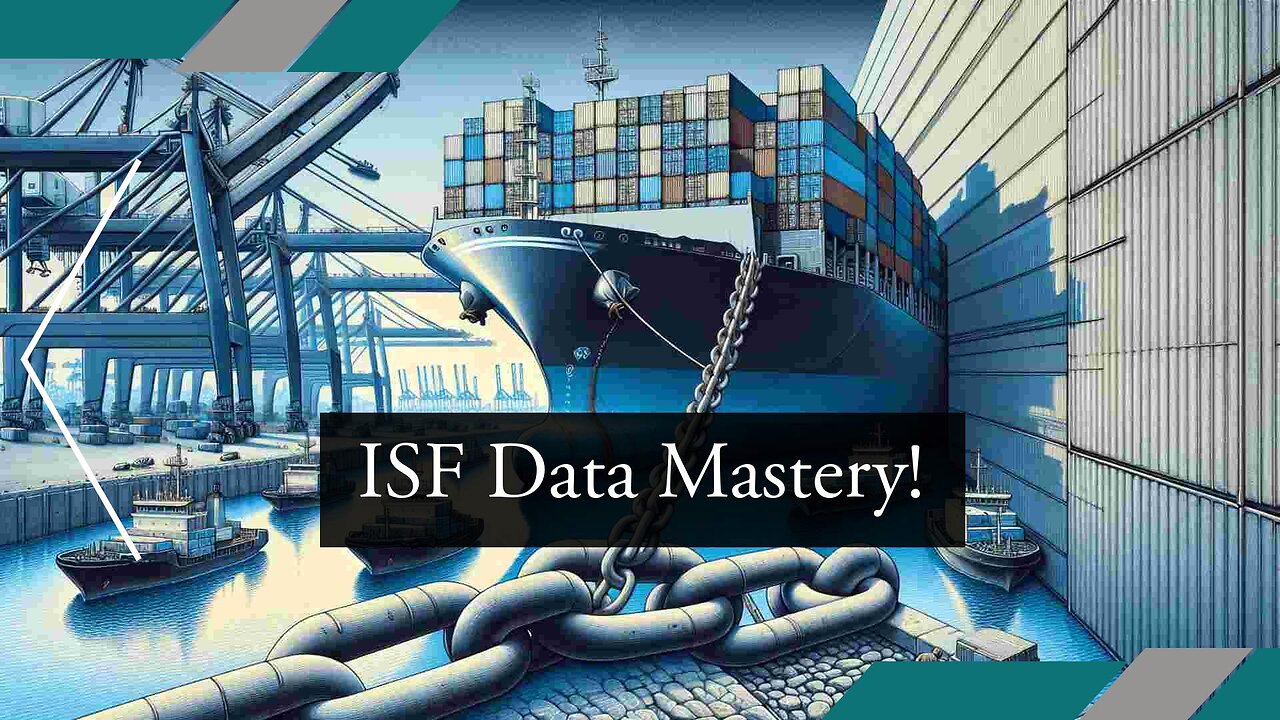Premium Only Content

Streamlining Imports: The Power of Harmonizing Data Standards and Formats
ISF Depot // 661-246-8217 // [email protected] // www.isfdepot.com
In today's episode of our customs brokerage series, we discussed the importance of harmonizing data standards and formats in Importer Security Filing (ISF). Harmonization involves establishing common rules and guidelines for recording, transmitting, and interpreting information related to customs processes. This contributes to smoother communication between importers, customs authorities, and other stakeholders involved in the importation process. The key benefits of harmonization include reducing errors and inconsistencies, improving compliance, facilitating faster processing of shipments, and enhancing collaboration and information sharing across borders. We also looked at the specific data elements typically included in Importer Security Filings, such as importer of record, consignee, manufacturer or supplier, country of origin, HS code, and container and seal numbers. Electronic data interchange (EDI) systems are commonly used for efficient data transmission. Additionally, we briefly touched on the importance of customs bonds, which serve as financial guarantees to customs authorities. Customs brokers play a crucial role in assisting importers with customs compliance and obtaining customs bonds. In conclusion, the harmonization of data standards and formats, along with the use of customs bonds, contributes to efficient and secure international trade. Stay tuned for more episodes exploring the world of customs brokerage and international trade.
#usimportbond #isfcustomsbroker #uscustomsclearing #isfentry
Video Disclaimer Here: This tutorial is independent and not affiliated with any US governmental entities.
0:25 Harmonization of data standards and formats in Importer Security Filing (ISF) is crucial for smooth customs processes in international trade.
0:46 Standardized formats reduce errors and inconsistencies in data, improving compliance and speeding up shipment processing.
1:23 Common data elements in ISF include importer of record, consignee, manufacturer/supplier, country of origin, HS code, and container/seal numbers.
-
 3:33
3:33
ISF Depot
5 days agoMastering ISF: Navigating the World of Textiles, Apparel, and Footwear Imports
6 -
 17:14
17:14
Mrgunsngear
5 hours ago $8.72 earnedUpdate: Current Glocks Discontinued & Glock V Series Is Coming!
21.9K26 -
 2:52:54
2:52:54
Barry Cunningham
6 hours agoMUST SEE: PRESIDENT TRUMP NATO PRESSER! AND NEW YORK CITY MAYORAL DEBATE!
46.9K42 -
 13:15
13:15
Cash Jordan
8 hours ago"INVASION" Mob STRIKES Chicago Jail… FRONTLINE Marines IGNORE Judge, SMASH Illegals
28.3K37 -

SpartakusLIVE
5 hours ago#1 Solo Challenge CHAMPION entertains HERDS of NERDS
21.5K -
 LIVE
LIVE
Alex Zedra
4 hours agoLIVE! New Game | DeathWatchers
270 watching -
 2:59:47
2:59:47
Nikko Ortiz
5 hours agoShotguns With A Magazine... |Rumble Live
14.5K -
 23:18
23:18
Lady Decade
10 hours ago $0.89 earnedThe Diversity Lie Gaming Refuses To Talk About
12K6 -
 2:41:05
2:41:05
Geeks + Gamers
5 hours agoGeeks+Gamers Play- MARIO KART WORLD
10K1 -
 5:33:12
5:33:12
Midnight In The Mountains™
8 hours agoGaming w/ Midnight | Studio is BACK and SO ARE WE | 3 AWAY FROM 1,500 WILL YOU GET ME THERE?!
5.89K3